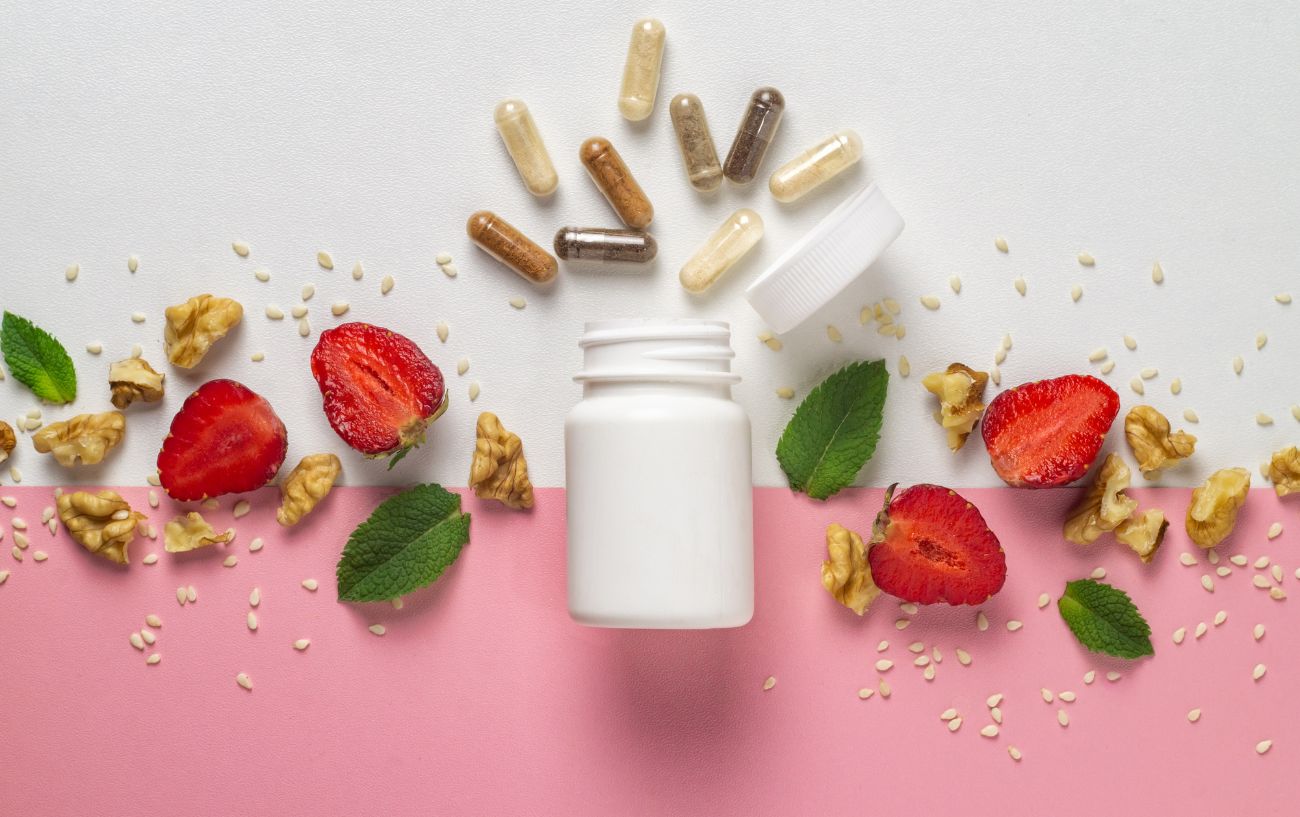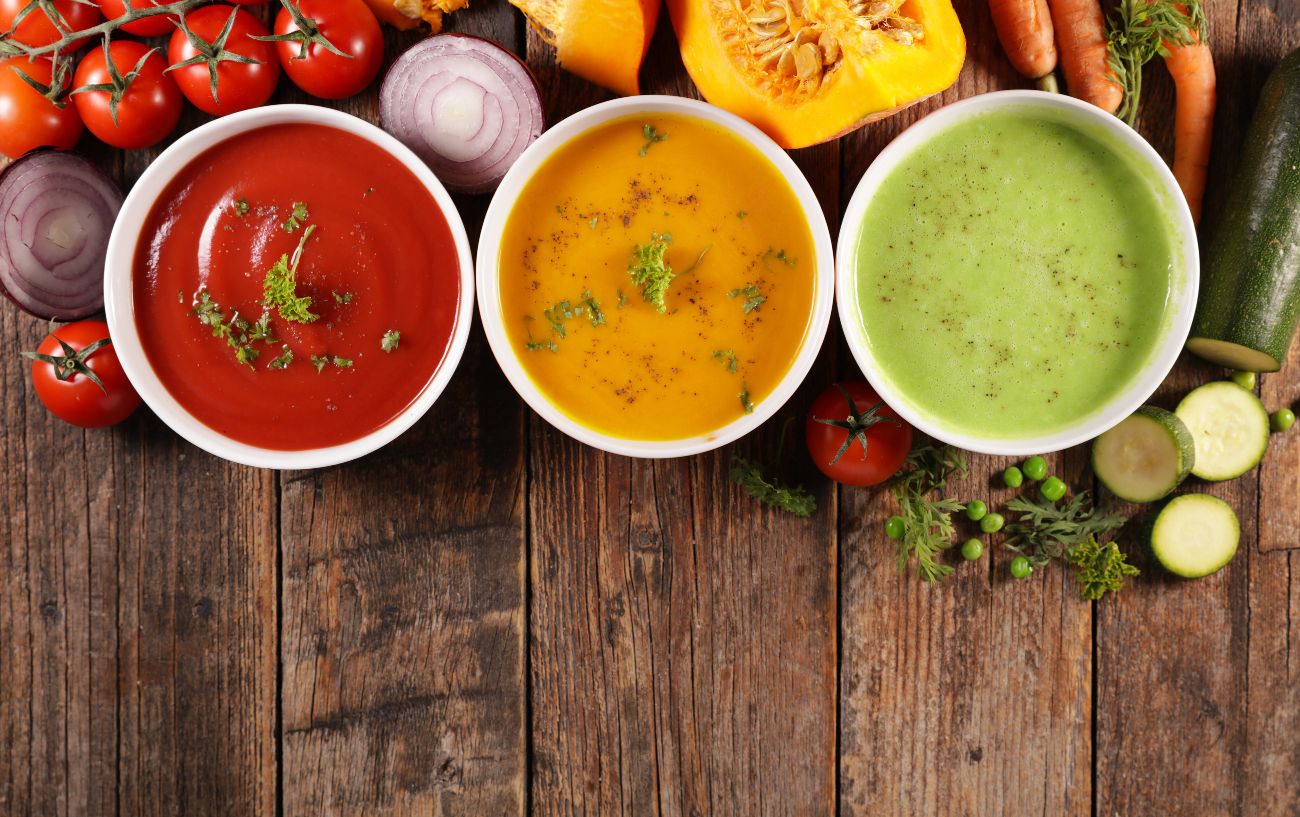The Hallelujah Diet is a strict, mostly raw plant-based diet that is based on a passage from the Bible.
Together, between the Hallelujah Diet foods and Hallelujah Diet supplements, proponents of this diet plan claim that it can prevent and even reverse over 170 diseases and help restore the body’s self-healing mechanisms.
In this guide, we will discuss the Hallelujah Diet, how to follow it, what you can eat, foods to avoid, and potential pros and cons of the Hallelujah Diet plan.
Lets jump in!

What Is the Hallelujah Diet?
The Hallelujah Diet was developed by Pastor George Malkmus, who was searching for guidance from the Bible that would be a natural and biblical way to help heal his bodyor, more specifically, give his body the tools it needed to heal itselfafter he received a cancer diagnosis.1What is the Hallelujah Diet? (n.d.). Hallelujah Diet. Retrieved January 2, 2024, from https://myhdiet.com/pages/what-is-the-hallelujah-diet
Pastor Malkmus eventually landed on a passage from the Bible book of Genesis (Genesis 1:29), which states: Then God said, I give you every seed-bearing plant on the face of the whole earth and every tree that has fruit with seed in it. They will be yours for food.’2Genesis 1:29 Then God said, “Behold, I have given you every seed-bearing plant on the face of all the earth, and every tree whose fruit contains seed. They will be yours for food. (n.d.). Biblehub.com. https://biblehub.com/genesis/1-29.htm
Per Pastor Malkmus interpretation of this biblical passage, the best diet for health should focus on plant-based foods rather than animal-based foods.
Accordingly, he developed the Hallelujah Diet plan to center around organic, clean, and almost all raw plant-based foods, particularly raw fruits and vegetables, while excluding animal-based foods and refined and processed foods.
Although the Hallelujah Diet focuses on consuming whole foods such as raw fruits and vegetables, it also involves taking specific proprietary supplements.

How Do You Follow the Hallelujah Diet Plan?
The standard Hallelujah Diet plan has four steps that together are supposed to help cleanse your body from toxins that can make you sick and restore your bodys ability to heal itself naturally.
Here are the four Hallelujah Diet plan steps:
Step 1
The first step of the Hallelujah Diet is to start eating almost exclusively raw vegetables, fruits, nuts, and seeds as a kickoff cleanse for weight loss and to provide the body with many nutrients.
Step 2
Secondly, you replace Hallelujah Diet toxic foods, such as meat, dairy, sugar, salt, and refined carbs, with healthier plant-based alternatives.
Step 3
The third step of the Hallelujah Diet plan requires juicing raw fruits and vegetables and taking the Hallelujah Diet BarleyMax supplement.
This organic, raw juice powder is touted to enhance nutrient absorption.

Step 4
Finally, the last step is supplementation. Supplements are a key component of the Hallelujah Diet program.
Dieters follow the highly restrictive Hallelujah Diet meal plan and must take proprietary supplements. There are also accompanying workouts, webinars, and educational resources for the program.
In addition to the standard Hallelujah Diet for health and weight loss, there are also the Hallelujah Recovery Diet and Rescue Plans designed specifically for people with cancer, heart disease, autoimmune diseases, arthritis, diabetes, irritable bowel syndrome (IBS), and Alzheimers disease.
The Hallelujah Diet Rescue Plans are basically supercharged versions of the Hallelujah Diet meal plan to help your bodys immune system achieve its maximum healing power.
This is because the body is already in a significant disease state with these conditions, so you need even more of a restricted healing diet.
Finally, there is the Hallelujah Diet Perfect Cleanse plan, which is a strict fasting diet.
For the Hallelujah Perfect Cleanse Diet, dieters abstain from all food for five days and can only consume six Hallelujah Diet cleanse supplements.
This 5-day cleanse is supposed to be done once a month for three months.

What Can You Eat On the Hallelujah Diet Meal Plan?
The Hallelujah Diet plan involves eating 85% of your calories or a proportion of your meals from raw foods and 15% from cooked plant-based foods.
There are no animal-based foods on the Hallelujah Diet meal plan, so this is a vegan diet plan.
However, in addition to being a standard vegan diet in that you cannot eat any meat, poultry, seafood, fish, eggs, dairy, or animal products, the main difference between the Hallelujah Diet and vegan diet is that the Hallelujah Diet is even more restrictive in terms of which plant-based foods you can eat and how you can eat those foods (raw vs. cooked).
You have a couple of supplement options offered in Hallelujah Diet supplement kits.
These are essentially several supplements bundled together, and you can choose the right supplement kit based on your diet and health status.
A quiz on the Hallelujah Diet website is supposedly designed to help you determine which Hallelujah Diet program supplements you need.
For example, many people start with the Hallelujah Get Started Kit, which includes the BarleyMax and fiber cleanse, or you might need the Immune Booster or Detox kits for the Perfect Cleanse Diet and the Hallelujah Diet Rescue Plans.

You can purchase supplements individually, such as raw vegan protein powders, probiotics, raw vegan superfood powders, various vitamins and minerals, and supplements for women approaching or going through menopause.
The Hallelujah Diet foods are divided into three categories: raw foods (which should be the bulk of your diet), cooked foods (which comprise a small portion of the diet and generally should be isolated to one meal per day), and foods to avoid altogether:
Raw Foods
At least 85% of your daily caloric intake for Hallelujah Diet meals should be raw foods, such as the following:
- Raw vegetables or unsulphured dehydrated vegetables
- Fruit: You can eat any fresh fruit and dried fruit as long as the dried fruit is organic, unsulphured, and contains no added sugar. However, fruit should make no more than 15% of your daily caloric intake.
- Grains: raw muesli, soaked oats, dehydrated crackers, and dehydrated granola
- Legumes: Sprouted lentils, sprouted mung beans, sprouted chickpeas, raw edamame, and raw peas.
- Protein-rich meat alternatives: Chia seeds, hemp seeds, and sprouted beans are listed as protein-rich plant foods
- Nuts and seeds: Raw or sprouted nuts and seeds like walnuts, almonds, pecans, macadamia nuts, hemp seeds, chia seeds, flax seeds, raw pumpkin seeds, and raw sunflower seeds. You can also have cold-pressed hemp oil, raw almond butter, and minute amounts of tahini (sesame paste).
- Soups and Smoothies: Raw soups and smoothies made from blended fruits, vegetables, and spices are permitted.
- Plant-Based Oils: Cold-pressed virgin coconut oil, cold-pressed avocado oil, extra virgin olive oil, Udos Oil (a vegetarian omega-3 oil blend), and flaxseed oil.
- Alternatives to Dairy Products: Fresh coconut milk and water, fresh almond milk, blended fruit milks like banana milk.
- Beverages: Distilled water, cold-pressed or freshly juiced fruits and vegetables, or Hallelujah juice powders.

Cooked Foods and/or Minimally-Processed Foods
No more than 15% of your daily caloric intake for Hallelujah Diet meals should be from cooked plant-based foods or minimally processed plant-based foods, such as the following:
- Vegetables: Steamed vegetables or baked tubers and root veggies like baked potatoes, roasted acorn squash, etc.
- Fruit: Cooked and unsweetened frozen fruits.
- Grains: whole grain cereals, pasta, bread, millet, brown rice, etc.
- Legumes: Cooked beans and lentils, including organic soybeans.
- Nuts and seeds: Roasted nuts and seeds as long as they do not have oil or salt added.
- Oils and fats: Vegan mayonnaise made from cold-pressed plant-based oil.
- Vegan Dairy: Vegan cheese, hemp milk, hemp yogurt, coconut yogurt, almond milk, cashew cream, and rice milk (sparingly) as long as no sugar or additives are used.
- Beverages: Herbal tea and organic bottled juices.
- Seasonings: Dehydrated spices and herbs.
- Soups: Homemade soups made from vegan foods with no added sugar.
- Sweeteners and Sweet Treats (use minimally): Natural sweeteners such as agave, stevia, unsulphured molasses, sorghum, carob, and organic maple syrup.

Foods to Avoid
The Hallelujah Diet meal plan restricts all of the following foods:
- Vegetables: Canned vegetables or any vegetables that have preservatives, sugar, or oils.
- Fruit: Canned fruit, sweetened fruits, and dried fruit that is not organic or has sulfur and/or sweeteners.
- Grains other than those listed above
- Beans: GMO soy
- Meat
- Poultry
- Fish
- Seafood
- Eggs
- Dairy
- Gelatin
- Honey
- Nuts that have been roasted and salted
- Processed oils, animal fats
- Alcohol
- Coffee and caffeinated tea
- Any seasonings with salt added
- All processed foods
- Sugar
- Artificial sweeteners

How Does the Hallelujah Diet Impact Overall Health and Wellness?
So, why choose a vegan diet? There are some great health benefits related to vegan diets.
Overall, the Hallelujah Diet plan focuses on nutrient-dense, unprocessed foods and removes added sugar and processed foods.
There have been several research studies that have found that people who follow a plant-based diet may lose more weight than those following an omnivorous diet.3Huang, R.-Y., Huang, C.-C., Hu, F. B., & Chavarro, J. E. (2016). Vegetarian Diets and Weight Reduction: a Meta-Analysis of Randomized Controlled Trials. Journal of General Internal Medicine, 31(1), 109116. https://doi.org/10.1007/s11606-015-3390-7
Plus, numerous studies4Wang, F., Zheng, J., Yang, B., Jiang, J., Fu, Y., & Li, D. (2015). Effects of Vegetarian Diets on Blood Lipids: A Systematic Review and MetaAnalysis of Randomized Controlled Trials. Journal of the American Heart Association, 4(10). https://doi.org/10.1161/jaha.115.002408 have found that transitioning to a vegan diet improves cholesterol, decreases blood pressure, lowers the risk of developing heart disease and type 2 diabetes, increases sensitivity to insulin, and helps control body weight.5Lee, Y., & Park, K. (2017). Adherence to a Vegetarian Diet and Diabetes Risk: A Systematic Review and Meta-Analysis of Observational Studies. Nutrients, 9(6), 603. https://doi.org/10.3390/nu9060603
Because the Hallelujah Diet eliminates all processed foods like refined grains, soda, candy, baked goods, and fast food, the meal plan may further protect against frequent and rapid spikes in blood sugar and insulin, which can lead to metabolic problems including type 2 diabetes over time.6National Institutes of Health. (2019, June 4). Eating highly processed foods linked to weight gain. National Institutes of Health (NIH). https://www.nih.gov/news-events/nih-research-matters/eating-highly-processed-foods-linked-weight-gain
High-fiber diets also help promote digestion and support the healthy gut bacteria.7MACFARLANE, S., MACFARLANE, G. T., & CUMMINGS, J. H. (2006). Review article: prebiotics in the gastrointestinal tract. Alimentary Pharmacology and Therapeutics, 24(5), 701714. https://doi.org/10.1111/j.1365-2036.2006.03042.x

What are the Drawbacks to the Hallelujah Diet?
However, the Hallelujah Diet is quite restrictive and not particularly well-balanced.
Fat and protein intake are too low per the 2020-2025 United States Dietary Guidelines.8United States Department of Agriculture. (2020). Dietary Guidelines for Americans 2020 -2025 . https://www.dietaryguidelines.gov/sites/default/files/2020-12/Dietary_Guidelines_for_Americans_2020-2025.pdf
There is a high risk of developing deficiencies, such as vitamin B12, iron, zinc, calcium, vitamin D, and omega-3 fatty acids, and the proprietary supplements are expensive, and not all of the manufacturing information is transparent.9Fontana, L., Shew, J. L., Holloszy, J. O., & Villareal, D. T. (2005). Low Bone Mass in Subjects on a Long-term Raw Vegetarian Diet. Archives of Internal Medicine, 165(6), 684. https://doi.org/10.1001/archinte.165.6.684
Furthermore, studies have indeed found that raw vegan diets are associated with an increased risk of tooth decay.10Ganss, C., Schlechtriemen, M., & Klimek, J. (1999). Dental erosions in subjects living on a raw food diet. Caries Research, 33(1), 7480. https://doi.org/10.1159/000016498
Some studies also have found that following a raw vegan diet meal plan increases the likelihood of amenorrhea by seven times relative to women following a typical diet, and that about 70% of women following a raw vegan meal plan experience menstrual irregularities.11(PDF) Consequences of a Long-Term Raw Food Diet on Body Weight and Menstruation: Results of a Questionnaire Survey. (n.d.). ResearchGate. https://www.researchgate.net/publication/12864083_Consequences_of_a_Long-Term_Raw_Food_Diet_on_Body_Weight_and_Menstruation_Results_of_a_Questionnaire_Survey
While the Hallelujah Diet meal plan and lifestyle changes should support health in many ways, some of its claims are unsubstantiated by scientific evidence, particularly in terms of treating cancer.12Zick, S. M., Snyder, D., & Abrams, D. I. (2018). Pros and Cons of Dietary Strategies Popular Among Cancer Patients. Oncology (Williston Park, N.Y.), 32(11), 542547. https://pubmed.ncbi.nlm.nih.gov/30474102/




